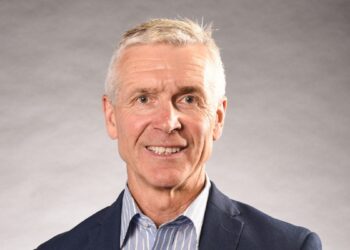Speaking at the National Press Club on Wednesday, the chief executive of AustralianSuper, Paul Schroder, said super’s tax concessions are a cornerstone of the system.
“We must also recognise that tax concessions are central to the success and fairness of superannuation – they’re not giveaways or foregone consolidated revenue – they are part of the long-term social contract that encourages Australians to save for retirement,” he said.
“The deal here is simple: I lock my money away for 40 years and, in return, the government gives me concessional tax arrangements … Tax concessions are incentives designed to reward long-term saving and shift the burden of retirement funding from future taxpayers.
“As the system matures, these concessions have become more targeted and equitable”.
He highlighted that reforms such as contribution caps, higher taxes for high-income earners, and transfer balance caps in retirement have made the system more equitable, and he suggested further fine-tuning could continue that evolution.
“Reviewing tax thresholds for both high and low incomes could be a continuation of that evolution,” he said.
“Policymakers, regulators, and the super industry must continue to evolve the system to deliver a sustainable and equitable retirement for all. Concessional tax arrangements are central to that.”
Expounding on this further during the Q&A part of his address, Schroder said the “$3-million-dollar proposition” is “kind of logical”.
“Very high-income earners and very large account balances could be taxed differently, that’s kind of logical,” he said, but stressed his focus would be on lower-income earners.
“There is a group of people who earn between $39,000 and $45,000 who don’t enjoy the same tax concessions as the rest. And if I was going to be providing any guidance to the government, I’d be saying that’s the group that should be compensated more,” he said. “I’m not too stressed about the $3 million, but if we’re going to use energy and time, I’d be thinking about lower-income earners rather than higher.”
Asked for his thoughts on taxing unrealised gains, Schroder added: “It’s up to the government and the parliament to set the rules, and we’ll do whatever the government and the parliament set”.
Last month, Schroder said it is very important for the $4 trillion superannuation industry that there is a “robust and strong” SMSF sector.
At the time, speaking on the ABC’s 7.30 Report, Schroder said while he believes the $3 million super tax proposal “broadly seems like a reasonable number”, the threshold should be indexed with inflation.
“The reason it should be indexed is because we’re in the business of making people richer in retirement. We want everyone to have more money,” he said.
“If you don’t index it, eventually people will get caught by it.”



Somehow, its called equity.
Its disappointing as those that pay the most tax are constantly hit over the head for more tax and less rebates or somehow have “concessions” taken away as they are not perceived as being deserving or needing of them.
Nothing mentioned about the trade off by those that somehow are told that they can afford to pay more because of their sacrifice and their trade off of time.
I can see why the “group of people who earn between $39,000 and $45,000” get this extra rebate – they would pay more tax in super than outside of super. Equity? Maybe? Is it fair? What is the definition of fair? Work harder and pay ever more tax and get fewer and fewer concessions, or work less hard or less and get looked after by those that are asked to pay ever more.
This is why I see the wealthy as now being the New Age slaves. A complete turn around from the 18th and 19th centuries. Fabianism has gone way to far to the left.
It doesn’t help that our so-called leaders are trashing the tax payers in the media and the media lets them. It is time really to take a stand and not be downtrodden anymore. Enough is enough. This is what Hockey was trying to engender when he talked about the “Lifters” and “Leaners”. The leaners used to be called “dole-bludgers” but it was seen as being derogatory and bullying I guess. Yet we are expected to cop this sledging from our so-called leaders.
We need to stop pussyfooting around and let our leaders that we will no longer tolerate this. Enough is enough.
The “group of people who earn between $39,000 and $45,000” are almost assured of the full aged pension, worth around $60k p.a. (indexed) for a couple, plus many discounts and waivers from state and local governments, unless they received a large inheritance or some other windfall. Workers in this wage bracket pay zero (or less) net tax during their working lives, so why do they need special treatment of their superannuation?